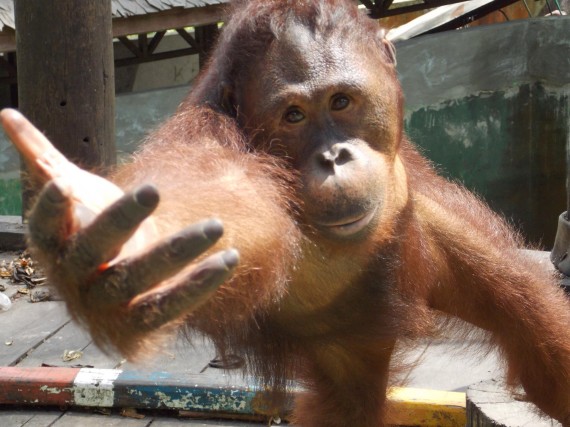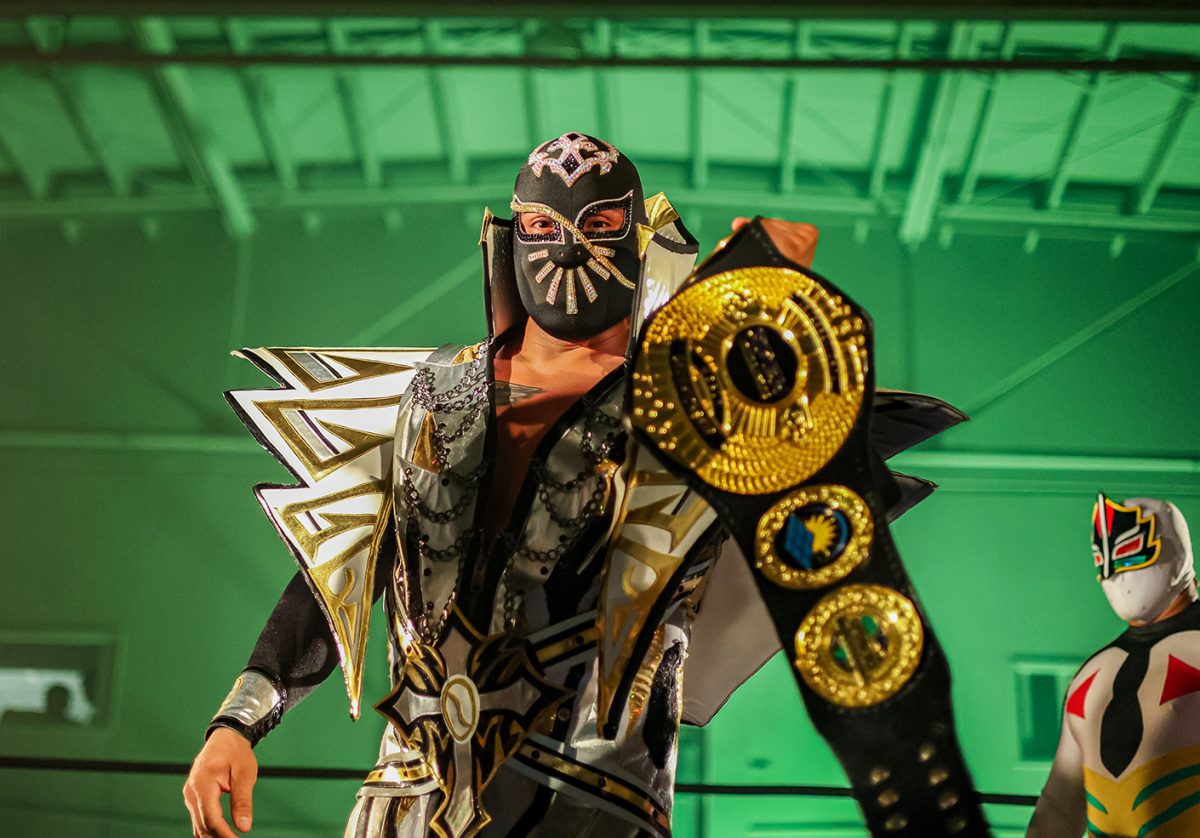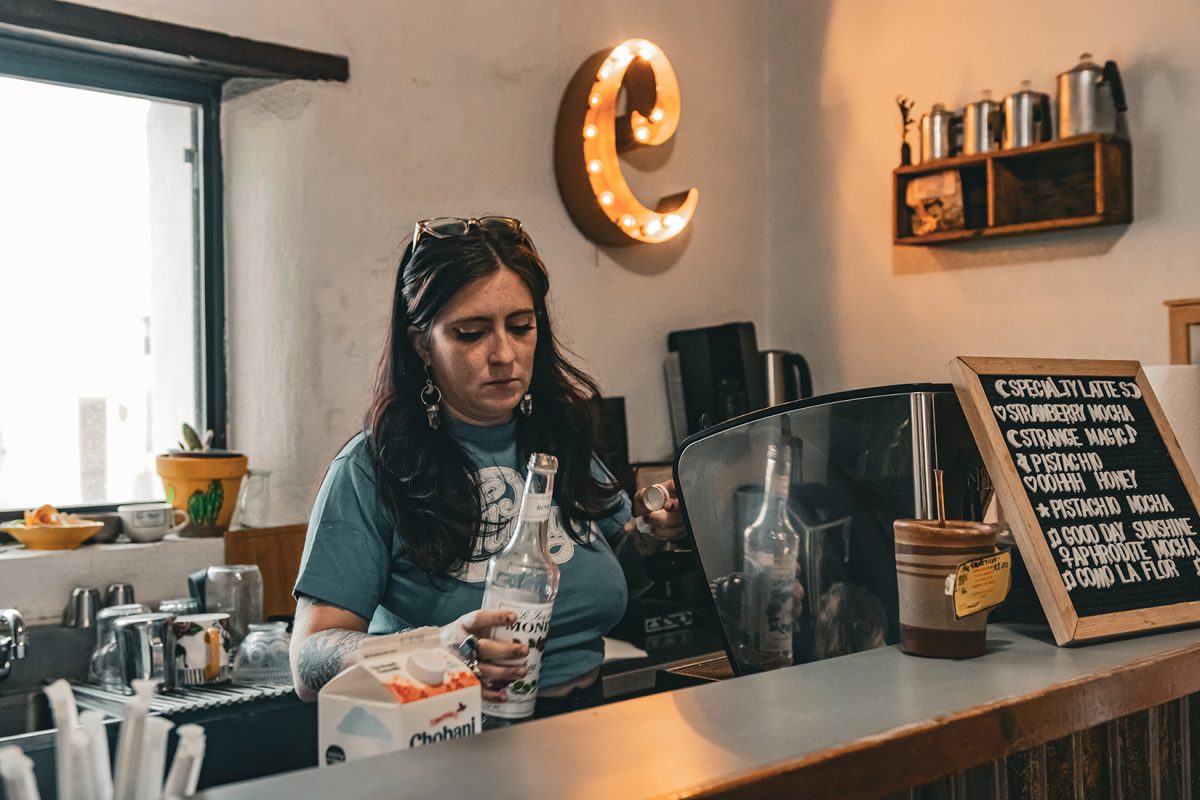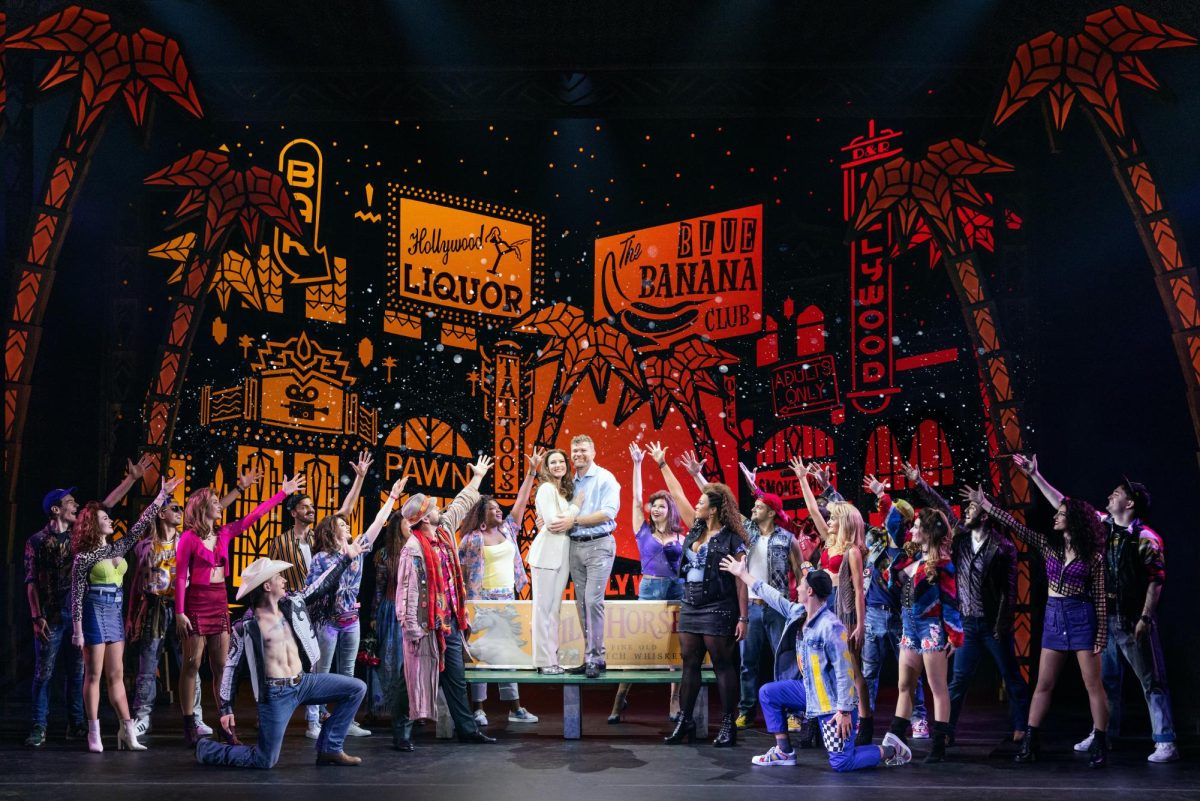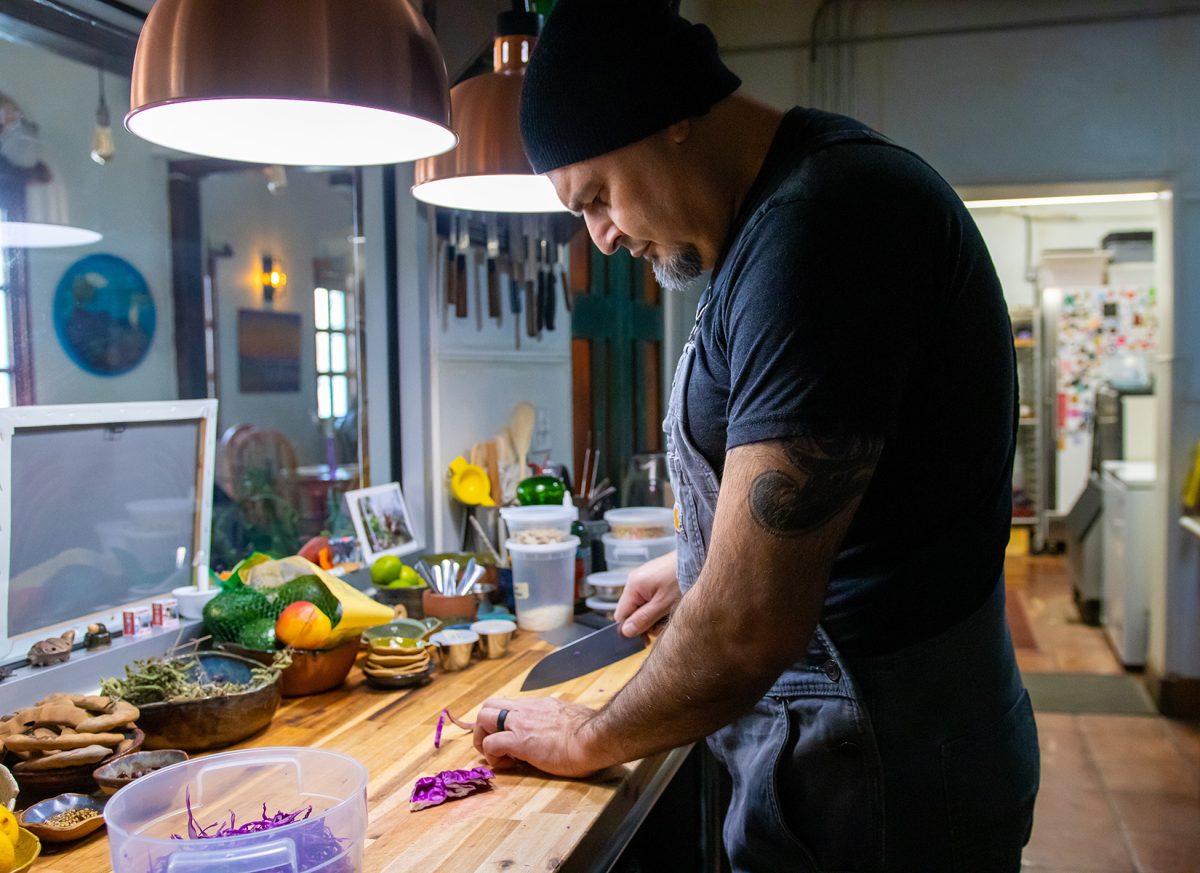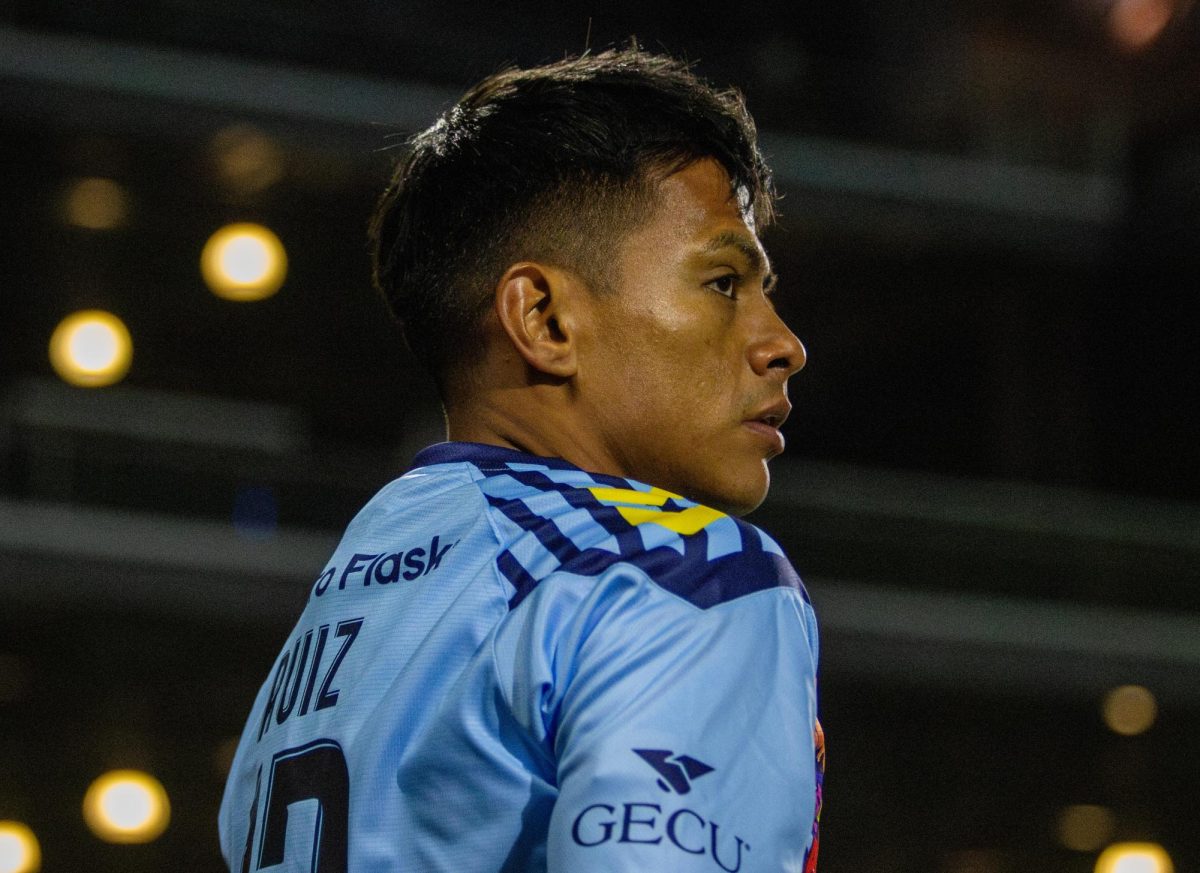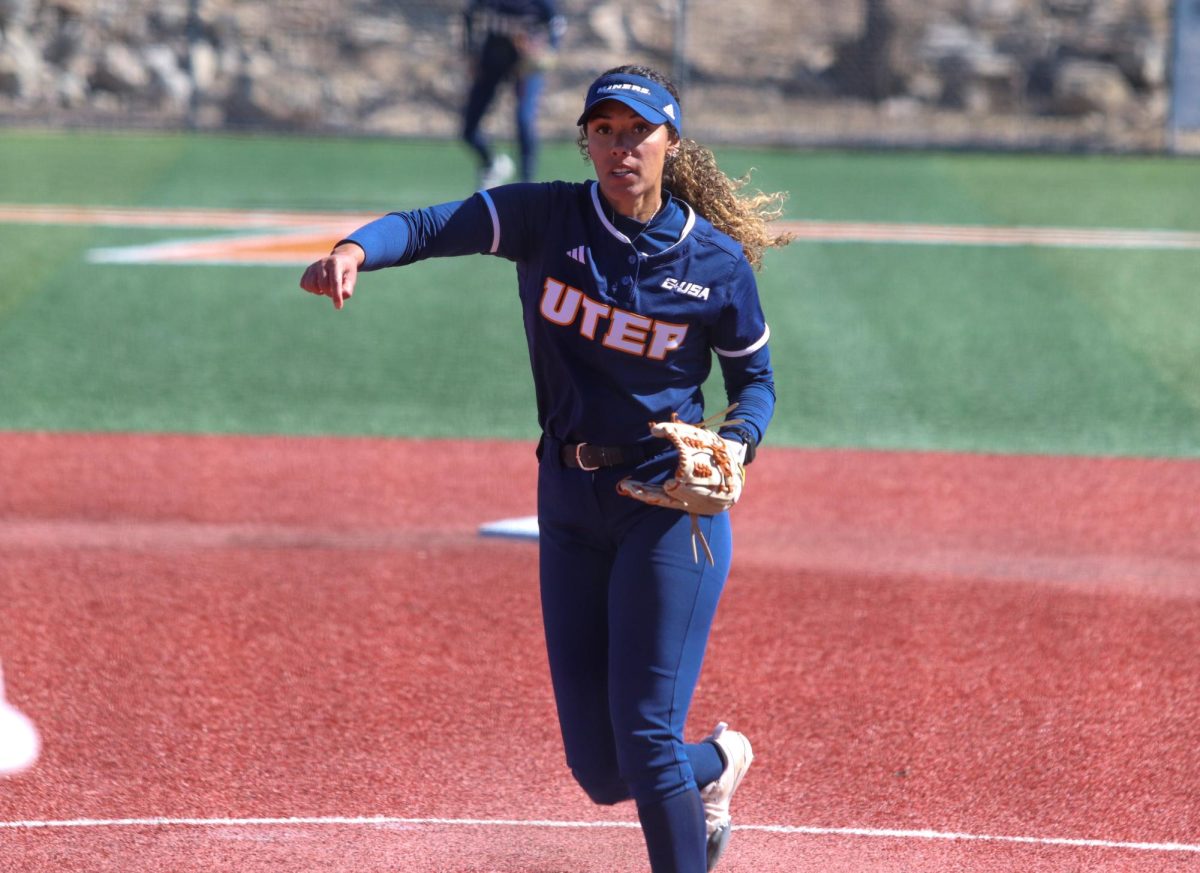Editor’s note: Maria Esquinca is a staff reporter at The Prospector and is currently in Indonesia for a study abroad program.
Through the small cracks of the windowsills enters the potent scent of fish. It travels from the sea released by the carcasses of dead fish. After the aroma escapes the gaping mouth of a dead fish it dances through the busy vendors and buyers, under cars, in between the spindles of a bike and under the windowsill until it arrives with a curt pinch into the nostrils of our nose. In the street we can see the silver twitching bodies of those frozen wide-eyed creatures that fill the metal buckets of the fish market. 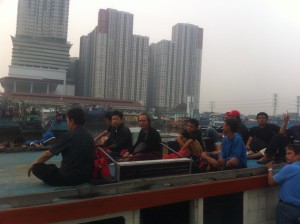
Though its five a.m. in the morning and the sun is barely rising, the port is alive and booming with the sound and clutter of people. We are leaving Jakarta and on our way to Harapan Island. 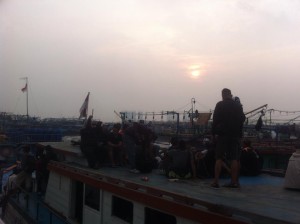
I don’t know it then, but stressed under the weight of all the other suitcases my already-broken zipper will snap, causing my suitcase to lie exposed like a patient who was abandoned mid-surgery.
In a flurry, Dr. Nukee, our guide and translator, will act with the speed and precision of an expert in “unforeseen circumstances.” He will place my suitcase in a cardboard box and wrap it with cellophane tape, both items the bus driver happened to have by chance.
“That’s improvisation,” Dr. Velasco will joke while I stare into horror and disbelief, muttering to myself, ‘this would happen to me.’
This event will force me to stay in the bottom floor of the boat in order to keep guard of my luggage, while the rest of my classmates enjoy the open air of the roof. 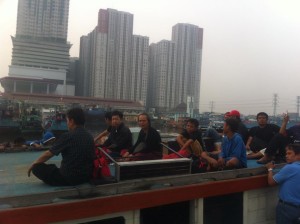
Inside the bottom floor the humid air is trapped within turquoise wooden walls, causing a series of small hand-fans to be opened and fluttered. It won’t be until the boat starts and the sea breeze enters through the windows that the heaviness of the humidity will subside.
I’m sitting atop a blue tarp on the floor shoeless. In Indonesia it is custom to take your shoes off when entering a private space. A group of women lay next to me. Earlier, the one nearest to me had tried asking me something, but her words entered and exited my ears as unsolvable puzzle pieces. 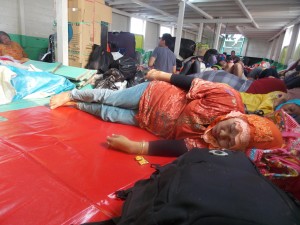
I nodded and looked at her confusedly then managed to muster “Inggris,” the Indonesian word for English. Later, Dr. Nukee told me she was asking me if I was going to Harapan Island.
Beside me, the motor of the boat roared, propelling the boat to life. But to the 25-30 people around me it was an unexpected lullaby and the side to side motion of the boat was their cradle.
“Everybody is asleep,” I told Nukee—a statement that propelled Nukee to tell me about the daily struggles of the people of Indonesia.
“It’s not an easy life,” he replies. “They work all day and then come here. People here make $200 a month.”
According to data from the Central Statistics Agency (BPS) in 2011 in Indonesia, the top 20 percent held a staggering 48.42 percent of total household income. However, the bottom 40 percent of income earners held 21.66 percent of total household income. Like Nukee’s story, the data is revelatory of the wide income inequality present in Indonesia.
The story resurrected images of the Grand Indonesian and empty shiny halls, fancy expensive clothes and smug faces, while a street market away pants were being sold for $3.
Struggling to speak above the roar of the motor, Nukee told me how education was some far off dream not possible for most people. It was too expensive. He told me about his own struggle to obtain an education. The months he went by without having any money, the odd jobs he had to fill in between.
With a furrowed brow Nukee looked at me and said, “I’m not representative of the Indonesia people, I got an education.”
After the talk with Nukee, I sat there bobbing in the boat. Sleeping bodies beside me and I reflected on world problems that I couldn’t solve.
I thought about the word poverty and how differently it can be manifested. I felt myself being raised to a status of affluence in comparison with the Indonesian people. How attending college for me had never been approached by how? But where? How some people won’t even have the circumstances to contemplate those questions.
Two hours into the three hour boat ride I felt both mentally and physically destroyed. The sea had lurched itself into the intestines of my stomach, cementing my body into a permanent position.
I was afraid of moving, I thought the slightest movement would cause me to throw up. Two levels above me one of my classmates had emptied out her stomach on the side of the boat and onto someone’s head, accidentally causing a man to scream and a series of apologies to be uttered.
It wasn’t until I mimicked the women and laid down on the tarp that my queasiness left. Below turquoise walls and the lapping sound of waves I submerged myself into sleep while a few miles away the clear waters of Harapan Island awaited. 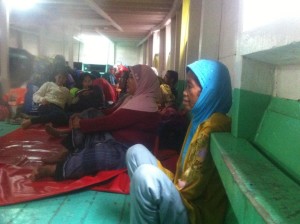
Maria Esquinca may be reached at [email protected].


